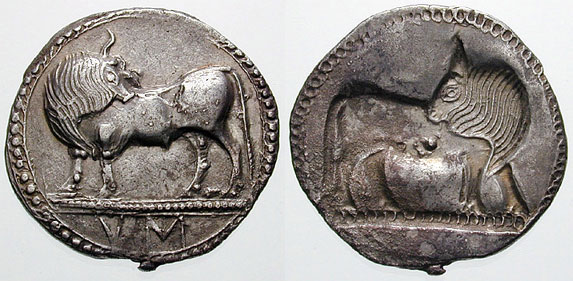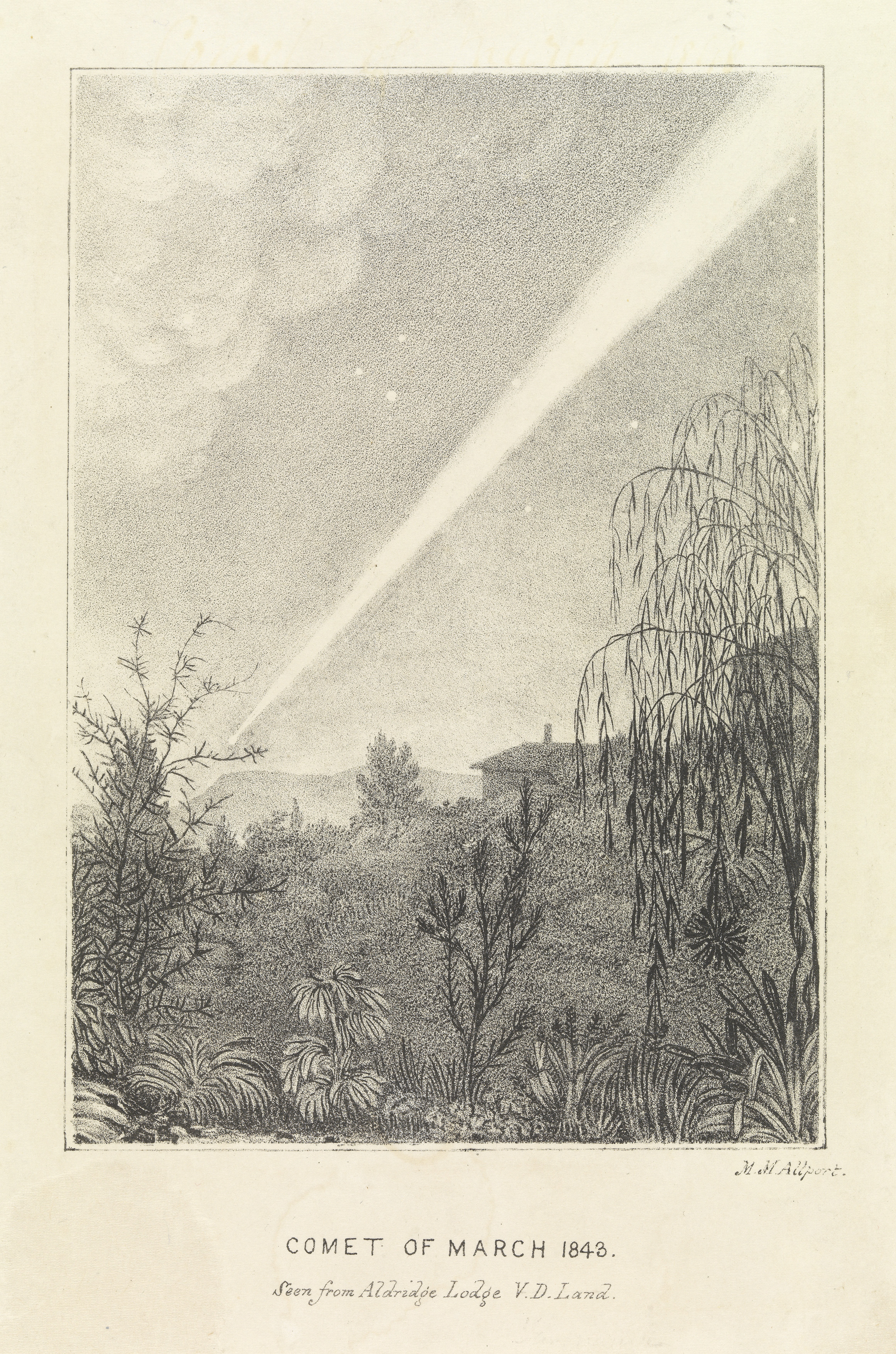|
Boura, Greece
Bura (also Boura, Bira; ) was an ancient polis (city-state) of Achaea, Greece, one of the 12 cities of the Achaean League. It is said to have derived its name from Bura, a daughter of Ion and Helice. The city was situated on a height 40 stadia from the sea, and southeast of Helike. Its name occurs in a line of Aeschylus, preserved by Strabo. It was swallowed up by the earthquake which destroyed Helike in 373 BCE, and all its inhabitants perished except those who were absent at the time. On their return they rebuilt the city, which was visited by Pausanias, who mentions its temples dedicated to Demeter, Aphrodite, Eileithyia and Isis. Strabo relates that there was a fountain at Bura called "Sybaris", from which the river and city in Magna Graecia, Italy derived its name. On the revival of the Achaean League in 280 BCE, Bura was governed by a tyrant, whom the inhabitants slew in 275 BCE, and then joined the confederacy. A little to the east of Bura was the river Buraïcus; and o ... [...More Info...] [...Related Items...] OR: [Wikipedia] [Google] [Baidu] |
Towns Of Ancient Achaia
A town is a type of a human settlement, generally larger than a village but smaller than a city. The criteria for distinguishing a town vary globally, often depending on factors such as population size, economic character, administrative status, or historical significance. In some regions, towns are formally defined by legal charters or government designations, while in others, the term is used informally. Towns typically feature centralized services, infrastructure, and governance, such as municipal authorities, and serve as hubs for commerce, education, and cultural activities within their regions. The concept of a town varies culturally and legally. For example, in the United Kingdom, a town may historically derive its status from a market town designation or City status in the United Kingdom, royal charter, while in the United States, the term is often loosely applied to incorporated municipality, municipalities. In some countries, such as Australia and Canada, distinction ... [...More Info...] [...Related Items...] OR: [Wikipedia] [Google] [Baidu] |
Sybaris
Sybaris (; ) was an important ancient Greek city situated on the coast of the Gulf of Taranto in modern Calabria, Italy. The city was founded around 720 BC by Achaeans (tribe), Achaean and Troezenian settlers and the Achaeans also went on to found the nearby great city of Crotone, Kroton 10 years later. Sybaris amassed great wealth thanks to its fertile land and busy port so that it was known as the wealthiest colony of the Greek Archaic world. Its inhabitants became famous among the Greeks for their hedonism, feasts, and excesses, to the extent that "sybarite" and "sybaritic" have become bywords for opulence, luxury, and outrageous pleasure-seeking. Sybaris also ruled over smaller colonies throughout the area, and had an ''acropolis'' at Timpone della Motta near Francavilla Marittima about 10 km distant. The city of Sybaris was destroyed in about 510 BC by its neighbour Kroton and its population driven out, but its colonies in the area continued to exist. It was replaced ... [...More Info...] [...Related Items...] OR: [Wikipedia] [Google] [Baidu] |
Great Comet Of 371 BC
The Great Comet of 372–371 BC (sometimes Aristotle's Comet) was a comet that was observed by Aristotle, Ephorus, and Callisthenes. Ephorus reported that it split into two pieces, a larger fragment that is thought to have possibly returned in 1106 AD, as X/1106 C1, and another smaller fragment. While visible from Earth, it was said to have cast shadows at night comparable to a full moon. The Great Comet is thought to possibly be the source of the Kreutz sungrazer family. Observations The comet was reported to have had a long, bright tail that had a reddish colour, as well as a nucleus brighter than any star in the night sky. Aristotle wrote in Book 1 of Meteorologica Quoting a lost source, Diodorus Siculus wrote that Effect on prophecy Diodorus wrote that the comet was believed by some to have foretold the decline of the Spartans, and describes the debate over its nature. Dispute over date The comet is sometimes referred to as occurring during 373-372 BC instead of ... [...More Info...] [...Related Items...] OR: [Wikipedia] [Google] [Baidu] |
Seneca The Younger
Lucius Annaeus Seneca the Younger ( ; AD 65), usually known mononymously as Seneca, was a Stoicism, Stoic philosopher of Ancient Rome, a statesman, a dramatist, and in one work, a satirist, from the post-Augustan age of Latin literature. Seneca was born in Córdoba, Spain, Colonia Patricia Corduba in Hispania, and was trained in rhetoric and philosophy in Rome. His father was Seneca the Elder, his elder brother was Lucius Junius Gallio Annaeanus, and his nephew was the poet Lucan. In AD 41, Seneca was exiled to the island of Corsica under emperor Claudius, but was allowed to return in 49 to become a tutor to Nero. When Nero became emperor in 54, Seneca became his advisor and, together with the praetorian prefect Sextus Afranius Burrus, provided competent government for the first five years of Nero's reign. Seneca's influence over Nero declined with time, and in 65 Seneca was executed by forced suicide for alleged complicity in the Pisonian conspiracy to Assassination, assassinate ... [...More Info...] [...Related Items...] OR: [Wikipedia] [Google] [Baidu] |
Pliny The Elder
Gaius Plinius Secundus (AD 23/24 79), known in English as Pliny the Elder ( ), was a Roman Empire, Roman author, Natural history, naturalist, and naval and army commander of the early Roman Empire, and a friend of the Roman emperor, emperor Vespasian. He wrote the encyclopedic (''Natural History''), a comprehensive thirty-seven-volume work covering a vast array of topics on human knowledge and the natural world, which became an editorial model for encyclopedias. He spent most of his spare time studying, writing, and investigating natural and geographic phenomena in the field. Among Pliny's greatest works was the twenty-volume ''Bella Germaniae'' ("The History of the German Wars"), which is Lost literary work, no longer extant. ''Bella Germaniae'', which began where Aufidius Bassus' ''Libri Belli Germanici'' ("The War with the Germans") left off, was used as a source by other prominent Roman historians, including Plutarch, Tacitus, and Suetonius. Tacitus may have used ''Bella Ger ... [...More Info...] [...Related Items...] OR: [Wikipedia] [Google] [Baidu] |
Diodorus
Diodorus Siculus or Diodorus of Sicily (; 1st century BC) was an ancient Greek historian from Sicily. He is known for writing the monumental universal history '' Bibliotheca historica'', in forty books, fifteen of which survive intact, between 60 and 30 BC. The history is arranged in three parts. The first covers mythic history up to the destruction of Troy, arranged geographically, describing regions around the world from Egypt, India and Arabia to Europe. The second covers the time from the Trojan War to the death of Alexander the Great. The third covers the period to about 60 BC. ''Bibliotheca'', meaning 'library', acknowledges that he was drawing on the work of many other authors. Life According to his own work, he was born in Agyrium in Sicily (now called Agira). With one exception, antiquity affords no further information about his life and doings beyond his written works. Only Jerome, in his '' Chronicon'' under the "year of Abraham 1968" (49 BC), writes, "D ... [...More Info...] [...Related Items...] OR: [Wikipedia] [Google] [Baidu] |
Polybius
Polybius (; , ; ) was a Greek historian of the middle Hellenistic period. He is noted for his work , a universal history documenting the rise of Rome in the Mediterranean in the third and second centuries BC. It covered the period of 264–146 BC, recording in detail events in Italy, Iberia, Greece, Macedonia, Syria, Egypt and Africa, and documented the Punic Wars and Macedonian Wars among many others. Polybius' ''Histories'' is important not only for being the only Hellenistic historical work to survive in any substantial form, but also for its analysis of constitutional change and the mixed constitution. Polybius' discussion of the separation of powers in government, of checks and balances to limit power, and his introduction of "the people", all influenced Montesquieu's '' The Spirit of the Laws'', John Locke's '' Two Treatises of Government'', and the framers of the United States Constitution. The leading expert on Polybius for nearly a century was F. W. Walbank (1909 ... [...More Info...] [...Related Items...] OR: [Wikipedia] [Google] [Baidu] |
Herodotus
Herodotus (; BC) was a Greek historian and geographer from the Greek city of Halicarnassus (now Bodrum, Turkey), under Persian control in the 5th century BC, and a later citizen of Thurii in modern Calabria, Italy. He wrote the '' Histories'', a detailed account of the Greco-Persian Wars, among other subjects such as the rise of the Achaemenid dynasty of Cyrus. He has been described as " The Father of History", a title conferred on him by the ancient Roman orator Cicero, and the " Father of Lies" by others. The ''Histories'' primarily cover the lives of prominent kings and famous battles such as Marathon, Thermopylae, Artemisium, Salamis, Plataea, and Mycale. His work deviates from the main topics to provide a cultural, ethnographical, geographical, and historiographical background that forms an essential part of the narrative and provides readers with a wellspring of additional information. Herodotus was criticized in his times for his inclusion of "legends an ... [...More Info...] [...Related Items...] OR: [Wikipedia] [Google] [Baidu] |
Heracles
Heracles ( ; ), born Alcaeus (, ''Alkaios'') or Alcides (, ''Alkeidēs''), was a Divinity, divine hero in Greek mythology, the son of ZeusApollodorus1.9.16/ref> and Alcmene, and the foster son of Amphitryon.By his adoptive descent through Amphitryon, Heracles receives the epithet Alcides, as "of the line of Alcaeus (mythology), Alcaeus", father of Amphitryon. Amphitryon's own, mortal son was Iphicles. He was a descendant and half-brother (as they are both sired by the god Zeus) of Perseus. He was the greatest of the Greek heroes, the ancestor of royal clans who claimed to be Heracleidae (), and a champion of the Twelve Olympians, Olympian order against chthonic monsters. In Roman mythology, Rome and the modernity, modern western world, West, he is known as Hercules, with whom the later Roman emperors, in particular Commodus and Maximian, often identified themselves. Details of his cult (religion), cult were adapted to Rome as well. Origin Many popular stories were told ... [...More Info...] [...Related Items...] OR: [Wikipedia] [Google] [Baidu] |
Vouraikos
The Vouraikos (, , ''Erasinus'' () according to Strabo) is a river in Achaea, Greece. In ancient times it was called Erasinos. Its source is in the Aroania mountains, near the village of Priolithos. It flows past the towns of Kalavryta and Diakopto, and flows into the Gulf of Corinth The Gulf of Corinth or the Corinthian Gulf (, ) is a deep inlet of the Ionian Sea, separating the Peloponnese from western mainland Greece. It is bounded in the east by the Isthmus of Corinth which includes the shipping-designed Corinth Canal and ... near Diakopto. It is long. The name is derived from Boura, a mythological daughter of Ion and Helice who was beloved by Hercules, who according to legend opened the gorge in order to get close to her. This is the Vouraikos gorge, which has a length of about 20 km. In the gorge the river passes along dense vegetation and steep cliffs, waterfalls and caves. The Diakofto–Kalavryta Railway passes through the Vouraikos gorge. According to legend ... [...More Info...] [...Related Items...] OR: [Wikipedia] [Google] [Baidu] |





